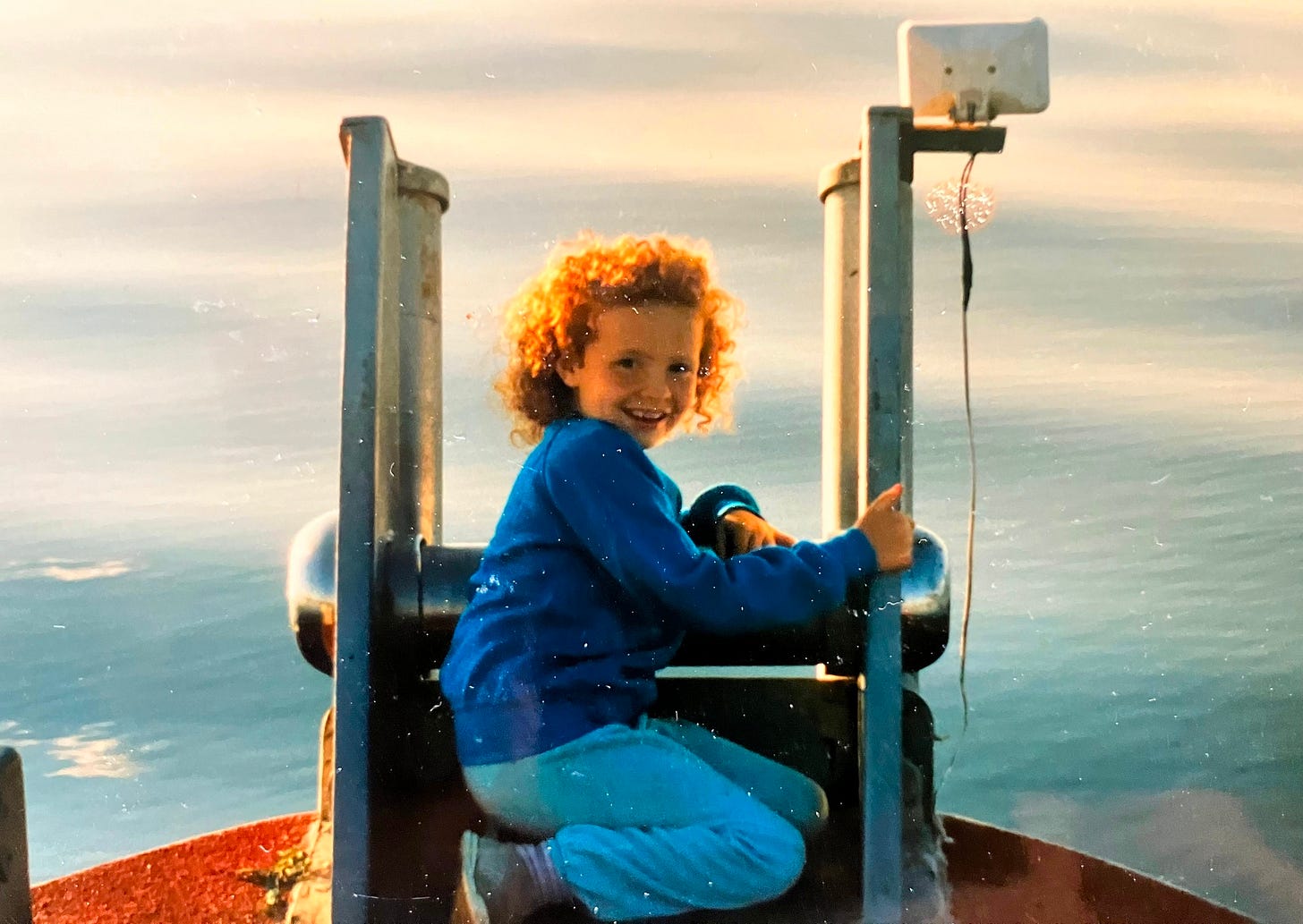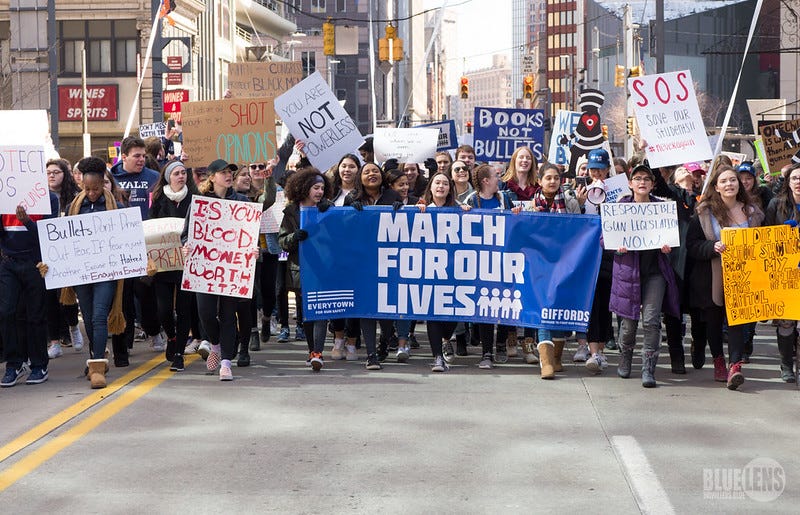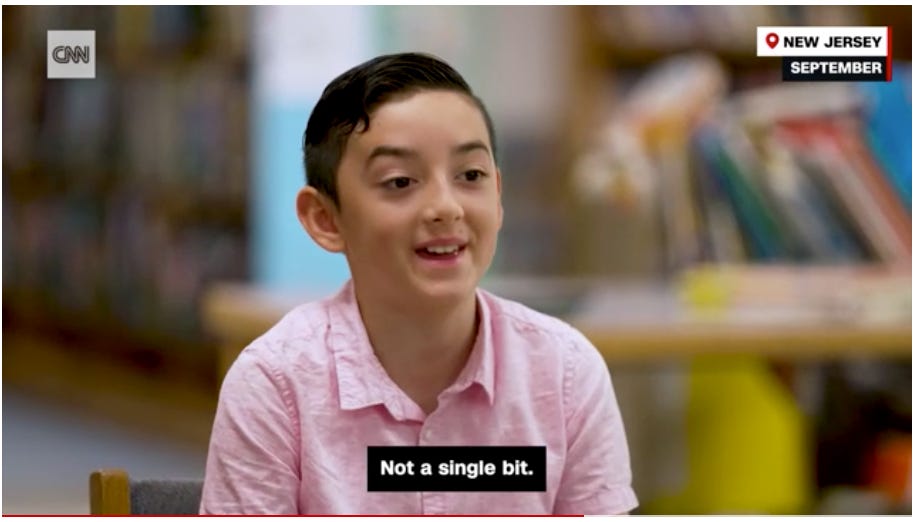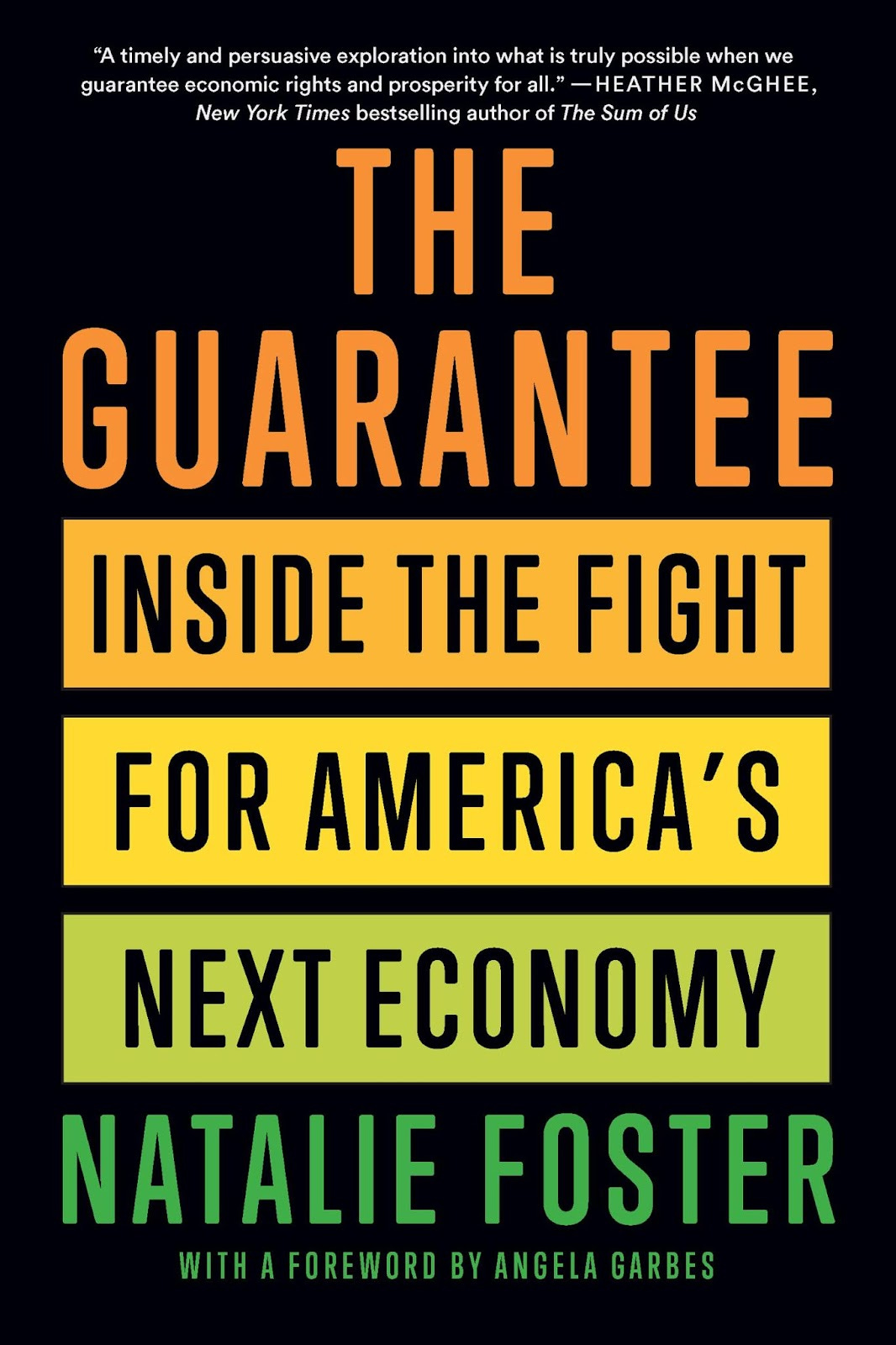Hi there. I’m Lisa Sibbett and this is The Auntie Bulletin, a weekly newsletter about kinship and community for people who choose to help raise other people’s kids. You can read my archive here. If you appreciate this newsletter, please consider becoming a paid subscriber for $5 a month or $50 for the year. You can also support my work by “liking” this post. It only requires a click on the little heart icon, and it helps other people find my Substack.
As always, read to the end for the Cute Kid Video of the Week.
Hey there, Aunties. Big week. Here in Seattle the weather has been unseasonably sunny and beautiful, and there were many victories for progressives in our local and state elections. But this (politically) blue city still feels pretty (emotionally) blue right now – a lot of passionately committed progressives in shock, fear, fury, and/or despair over the outcome of the presidential election.
This week I’m writing about what kids need to hear when the adults around them are deeply upset. If the kids in your life were hoping for a Harris victory, they are now likely wrestling not only with their own disappointment and anxiety, but also with the emotions of the adults around them – as well as, in many cases, the social fallout among their peers.
I’ve been an Auntie for nearly thirty years, and I’ve also spent a lot of time studying child development as an educational researcher. Most importantly for this post’s purposes, I was also a high school social studies teacher for several years, during which time I had meaningful, near-daily discussions with adolescents about social issues, social movements, and elections. I found out a lot about the conclusions kids jump to when they feel the social order has been disrupted, as well as what helps them move forward with security, confidence, and hope. Here’s what I learned.
Let kids know they’re not in immediate physical peril.
When I was a kid, I often accompanied my dad on multi-day fishing trips on the Columbia River. A commercial fisherman who fished for a living, he set his gillnets just upstream from the then-operational Trojan Nuclear Power Plant, where the cooling tower loomed above the pretty river landscape. Naturally, I had a lot of questions, and I’m afraid my dad’s answers didn’t put my mind at ease. He told me about Chernobyl and Three Mile Island, and Aunties, I genuinely believed that Trojan might blow at any moment. I loved going fishing with my dad when I was a kid, and I also imagined that, whenever we were there, we totally might die.1


Kids are catastrophizers because they have such limited life experience. By adulthood, we’ve all lived through myriad dire predictions about the world, almost none of which came true, and this experience helps us gain a sense of reality and proportion. But kids don’t have this perspective available to them. If an adult tells them nuclear power plants sometimes explode and kill everyone nearby, they’re liable to believe it could happen any minute. If they overhear that we’re headed for World War III, they imagine that they personally are soon to be living in a war zone. (Teenagers especially tend to jump to this conclusion, having more awareness of the previous World Wars).
Right now, kids who have been told Donald Trump is a bad man need to be reassured that the adults in their life will continue to take care of them and protect them from harm. To be sure, there are children in the United States who may be affected by Trump’s proposed policies sooner than later, including transgender kids, the children of undocumented immigrants, and kids who have loved ones in war zones. If you know a kid like that, they especially need reassurance that they will be cared for and protected. But all kids who are worried need to hear that for the most part, their life will go on as normal.
Don’t let kids conclude that their social movements have failed.
Do you remember the March for Our Lives in 2018? After the Parkland school shooting, survivors from Marjory Stoneman Douglas High School and kids all over the country walked out of school demanding gun control legislation. Here in Seattle, several high schools had major walkouts. The main march in D.C. had hundreds of thousands of protesters. For many young Americans, it was their first political demonstration.
The following fall, I was observing in a high school U.S. History class where students were discussing the United Farmworkers Movement and other social movements. A kid raised his hand and said that they had all marched for gun safety six months ago and nothing had happened, which made him think their demonstration hadn’t worked.
The novice teacher I was supervising that day didn’t respond to this kid’s comment, but if I’d been leading the class, I sure would have. Social change takes a long time, I would’ve told the class. The fact that so many young people marched for gun safety was a big deal, and while their walkout had not yet (and still has not) brought about the reforms they hoped for, we haven’t yet reached the end of the story, either. If stricter gun safety laws are passed in the United States, it will likely be in part because millions of young people who have experienced the terror of a school lockdown demand it.2
Just as kids have no frame of reference for whether World War III is impending, they have no frame of reference for understanding the arc of history. They haven’t experienced social conditions changing over time because they haven’t been alive very long. If a social movement doesn’t work right away, they’re liable to conclude it has failed.
Kids need to hear that social change takes time, and that organizing and community building are always important and worthwhile. They need to understand that setbacks don’t mean it’s time to give up. Indeed, a serious setback may mean it’s necessary to intensify our efforts. You can tell kids about times when you have had setbacks or thought something was a lost cause – especially if you turned out to be wrong. And as Melinda Wenner Moyer has suggested recently, you can say: “We are going to do everything in our power to fight to make things better and we are going to make a difference.”
This week in her newsletter, the examined family, Courtney Martin offered a lovely example of a spontaneous conversation along these lines, with her own daughters on election night:
There is this moment, sandwiched in my too small bed with my getting bigger daughters on either side of me, each reading (Jeff Kinney for 8-year-old Stella, John Greene for 10-year-old Maya), when I feel something clean and clear in my chest, and without precognition, I say, “We are going to move through our lives being as different from [Donald Trump] as we can—looking for those who feel scared or left out, welcoming them in, respecting people’s bodies and inherent worthiness, noticing the tenderness in ourselves and embracing it. We have to be as different from him as possible.”
They nod diligently, meditatively almost. My 10-year-old, who is experimenting with eye rolling at my speeches, says solemnly, “Got it.” And we go back to reading.
I love this story about Martin’s daughter’s reaction: it’s clear she gets the seriousness. It’s clear she gets the message.
Encourage kids’ friendships, regardless of what their families believe.
Earlier this year, researchers from Arizona State University and Stanford University asked fourth and fifth graders about their political views. In one question, the researchers asked if the kids or their parents would be okay with them visiting the home of a friend whose family supported the opposing presidential candidate. Most kids said it would be fine, but some of the kids from Trump-leaning households and a full third of the kids from Harris-leaning households said they would be unwilling. Commissioned by Anderson Cooper 360, CNN’s report on this study includes video of some of the kids discussing what their parents would allow, and it’s really worth a watch.
I want to suggest that children shouldn’t be pulled into their parents’ animosities before they, the kids, have had a chance to form their own views — something that can’t really happen until they reach their teens. It is not fair to judge a child for the views of their household. This is because, prior to adolescence at least, children default to their parents’ allegiances, full stop. Moreover, if their caretakers have overt political opinions, the kids have likely gotten the message that these opinions are ethical and accurate while the opinions of those who believe otherwise are immoral and false. Before they’re old enough to start making their own judgment calls, kids will believe whatever message they’ve received.
Given that kids’ political allegiances are arbitrary until at least adolescence, allowing these views to influence their friendships is a mistake. Children need to feel welcome to choose their friends based on enjoying each other’s company, and they need to be discouraged from excluding others just because their families believe different things.
Now, as children reach their teens, they start to differentiate from their primary caretakers’ belief systems. This might take the form of full-on rebellion, but more often it’s just a matter of adolescents starting to make sense of the social world on their own terms. Given access to an array of political perspectives and a chance to learn about historical and current events (say, in their high school social studies classes), they often make novel connections, develop deeper understandings, and learn to apply their perspectives in unfamiliar contexts. As they take meaningful ownership of their views, it makes more sense for them to start to choose their friends based partly on shared beliefs. But not before.
Find out how kids are doing, and partner with their parents.
When the adults in their lives are deeply rattled, kids notice. Their worries may or may not be perceptible, however, because kids – like adults – do their most intensive worrying after bedtime. Even for kids who seem *fine,* if they live in an anti-Trump household, they’re likely arriving at a lot of conclusions about the world right now.
Adults can and should sound children out about their thoughts and feelings, and let them know we will continue to take care of them. I encourage you to actively find out how the kids in your life are making sense of the election outcome. Be a little patient and wait for your opening (and if you need a conversational warm-up, you might try my tips on breaking the ice). You don’t need to grill the kid, just try to get a sense: how are they feeling about the outcome? What do they think will happen as a result? What have they heard other kids saying? Helping them to surface the conclusions they’re drawing will give you an opportunity to respond.
One way to show that you take the kids in your life seriously is to engage with their ideas in kind. When they share how they’re feeling about the election outcome, you can share your feelings, too. Make your contributions shorter and simpler for little kids, and feel free to introduce some complexity for the older ones. When they answer your questions about what they think will happen, you can share what you think will happen, too – both what you feel worried about, and what gives you hope. For me, it’s often kids themselves that bring me the most hope. They’re often so wise, and so loving, and so brave.
Remember that as Aunties, we are in partnership with kids’ primary caregivers. I always give parents a heads up if I have a serious conversation with their kid — for example, about what abortion is, how they’re feeling about their parents’ divorce, or why I don’t have any kids. (Pro tip: with teenagers, be sure to disclose to them that you will mention your chat to their parents). The heads up lets my loved ones be prepared for any follow-up questions from their kids, shows that I recognize my supporting (rather than lead) role, and helps all of the adults who love the kid collaborate to support them.
Aunties, grandparents, step-parents, teachers, and alloparents of all kinds have an important role to play in helping kids make sense of hard realities. By sharing our own thoughts and feelings, and making space for kids to process with adults who aren’t their parents, we show there are many valid ways to understand and deal with what’s happening. Many parents want their kids to understand that difference is okay, but telling them so can’t hold a candle to actually showing them. And just to be clear, adults don’t need to hold starkly opposing views for this lesson about difference to land; just engaging with adults who are paying attention to slightly different things can have huge benefits for children’s flexibility and resilience in frightening times.
We don’t have to have all the answers in order to talk to kids about the election or anything else – and we don’t have to pretend that we’re fine, either. When we engage kids in genuine conversation about their thoughts and feelings, and we emphasize that we will continue to take care of them, they can move forward with resilience and courage. Indeed, talking through thoughts and feelings about the election with the kids in our lives might provide us grieving adults with a needed dose of hope ourselves.
Three Recommended Reads
One. A More Just Future Might Be Right Around the Corner
Okay, it feels a little naive to suggest that a more just future could be coming soon when someone who routinely threatens his political enemies just won the popular vote by a large margin. But I was looking forward to reading Natalie Foster’s new book, The Guarantee last week, and I still am this week.
Check out this book review at The Forge, my go-to site for guidance on progressive organizing. The reviewer explains:
Foster doesn’t minimize the difficulties of inflation, tragedies like the genocide in Gaza, or the threat of authoritarian leaders like Trump. Instead, she subtly pushes back against a… cynicism on the left that’s content to loop endlessly on how bad the world is, as if this kind of self-destructive pessimism actually accomplishes anything….
Foster insists that we can act strategically. She borrows the term “hopepunk” to describe this mentality. It’s neither “grim dark”––the tone of prestige television where every episode ends with something impossibly bad happening––nor “noble bright”––where the world can be viewed through rose-colored glasses as if nothing is wrong. Hopepunk is as messy as reality; it doesn’t deny that you may get laughed out of the room at first. But it insists that you can’t stop there; you have to persist. It’s possible to win allies. It’s possible to win. But you can’t be satisfied with mere provocation. You have to figure out how to legitimize and then find a credible path to victory.
Two. Overwhelmed with Grief
In times of distress, Heather Havrilesky’s unique blend of rage and compassion is a soothing balm. In this week’s Ask Polly, she responds to someone’s question about dealing with the grief of multiple pregnancy loss and losing a parent and manages to spin her answer into a long, lovely, characteristically f-bomb-laden reflection on how we can hold emotions that threaten to break us apart.
Connection feels like nothing when you’re devastated. Who cares? I am completely lost, completely broken, you think. I can’t do this. Stop acting like it’s simple. Stop pretending love can pull me through this shit.
I understand. I feel that way, too. I can’t believe the election turned out this way. I thought I was prepared, but I wasn’t. I feel like the whole world is slipping away. I feel very scared and I want to tell a lot of people to fuck off.
I’m going to sit still and think about the people I love instead. I’m going to send love to all the people I don’t know who are very scared. I’m going to repeat these words to myself today — and this week, and this year, and next:
Connection is everything.
Just TRYING to connect is everything.
Even TRYING to connect and FAILING is everything.
All we can do is try…. It’s exhausting to try. It feels pointless. But it is always, always good and useful and interesting to try, even when you fail…. Trying is a light in the darkness.
Three. Apparently We Love Losing
If you’re a far-left progressive and the name David Brooks makes you gag, please hear me out. I’m a far(ish)-left progressive myself, and I’m definitely one of the coastal elites Brooks critiques. I live in one of the most progressive, ethnically diverse neighborhoods of my liberal coastal city. I have a Ph.D. and I know how to use it. During my career I’ve planned and facilitated many workshops on diversity, equity, and inclusion. And yet when I read Brooks’s critiques of what people like me are doing wrong politically, I think he’s pretty much spot on. His essential argument is that coastal elites are snobs who tend to police others’ ethics based largely on whether they use the right vocabulary, and this is off-putting and alienating to everyone else. In his latest editorial for The New York Times (gift link), Brooks argues that Democrats need to “do some major rethinking,” including – in a surprise move for a moderate conservative – suggesting we may need to move further left. He explains that, in this election,
Donald Trump jumped into the class war with both feet. His Queens-born resentment of the Manhattan elites dovetailed magically with the class animosity being felt by rural people across the country. His message was simple: These people have betrayed you, and they are morons to boot.
In 2024, he built the very thing the Democratic Party once tried to build — a multiracial, working-class majority. His support surged among Black and Hispanic workers. He recorded astonishing gains in places like New Jersey, the Bronx, Chicago, Dallas and Houston. According to the NBC exit polls, he won a third of voters of color. He’s the first Republican to win a majority of the votes in 20 years.
The Democrats obviously have to do some major rethinking. The Biden administration tried to woo the working class with subsidies and stimulus, but there is no economic solution to what is primarily a crisis of respect.
There will be some on the left who will say Trump won because of the inherent racism, sexism and authoritarianism of the American people. Apparently, those people love losing and want to do it again and again and again.
The rest of us need to look at this result with humility. American voters are not always wise, but they are generally sensible, and they have something to teach us. My initial thought is that I have to re-examine my own priors. I’m a moderate. I like it when Democratic candidates run to the center. But I have to confess that Harris did that pretty effectively and it didn’t work. Maybe the Democrats have to embrace a Bernie Sanders-style disruption — something that will make people like me feel uncomfortable.
Coming Attractions
Next week, by popular request, check your inbox for my guide to not giving gifts — at all. Not to kids, not to adults. Not purchased, not thrifted, not handmade. Nothing. I haven’t given gifts in years and nobody has gotten mad at me. In my next post, I’ll share how I get away with it. Get ready to sit out Black Friday!
Also coming soon:
The absolutely, totally, unequivocally, #1 best way to decide if you want to have kids (I’m serious)
New Baby Bill of Rights – what families should be able to expect from their people in week one
How Aunties can support public schools
What to do when a kid makes you something… and you don’t know what it is
It takes me a lot of hours each week to bring you such newsletter gold. I’m hoping to drop my gig work soon and go full-time with The Auntie Bulletin and related projects. Upgrading to a paid subscription will help me keep paying for my honestly-not-very-great health insurance. Do a gal a solid!
And Now, the Cute Kid Video of the Week
Thanks for making it this far, Aunties. My favorite thing about this week’s cute kid video is less the message (although it’s true, important, and timely) and more the young narrators’ voices. These kids are so cute, I can’t even! (Although I confess I’m still working out what the younger child is even saying at a couple of points, and I’ve watched this video half a dozen times. Hint: for the child’s “t” sound, substitute a “k” sound).
Nothing Sold, Bought, or Processed
Even though I *just* asked you for money a minute ago, I’m going to do it again because this is the end of the newsletter and that’s what I do at this point. Allow me to inform you that the Auntie Bulletin is an ad-free, anti-capitalist publication that will never try to sell you anything and receives no money from affiliate links. I can only offer it if readers like you voluntarily make modest donations to keep the lights on. This newsletter does not have a paywall, and I’d like to keep it that way. I ask that if you appreciate what you read here, you take a few seconds right now to become a paid subscriber. It’s affordable at only $5 a month, and it allows everyone to be able to access The Auntie Bulletin, regardless of their income.
Don’t judge my dad. I’ve inherited his tendency to heedlessly say scary things to kids on occasion, and I know how easy it can be to lose track of what they might find alarming. The reality is that kids are sometimes going to hear things that frighten them in life, and a good goal is for them (for all of us, really) to learn to self-regulate and to ask for and receive support.
Take it from this former teacher: when lockdown drills happen unannounced, they are utterly, heartstoppingly terrifying. You never know if it’s the real thing.







Thank you for this post, Lisa, and for the very thought-provoking reads at the end, as someone who processes by reading and writing. I think reminding the younger people in my life, and frankly, my peers and myself, that this is not the end of the world has been huge this week. I feel like a lot of Democratic messaging for several months, pre-election, was “this is the One Last Chance to save our rights and preserve democracy!” And while I understand the desire to motivate voters and communicate the serious stakes of the election, that kind of catastrophizing really didn’t set people up to build resilience or feel even mildly okay in the wake of Trump’s election. Especially for people of all ages with anxiety and depression — check in on them this week. Some of my friends and my kiddos are in very dark places mentally, and while there’s no need to push blind optimism or diminish their pain, it really helps to try to break that downward spiral towards doomsday thinking.